Art History
Art History Brims With Christmas Scenes. Here Are 11 Works to Get You Ready for the Season
It’s been a long year. Rest your eyes on some pleasant holiday-themed paintings to celebrate getting through it.
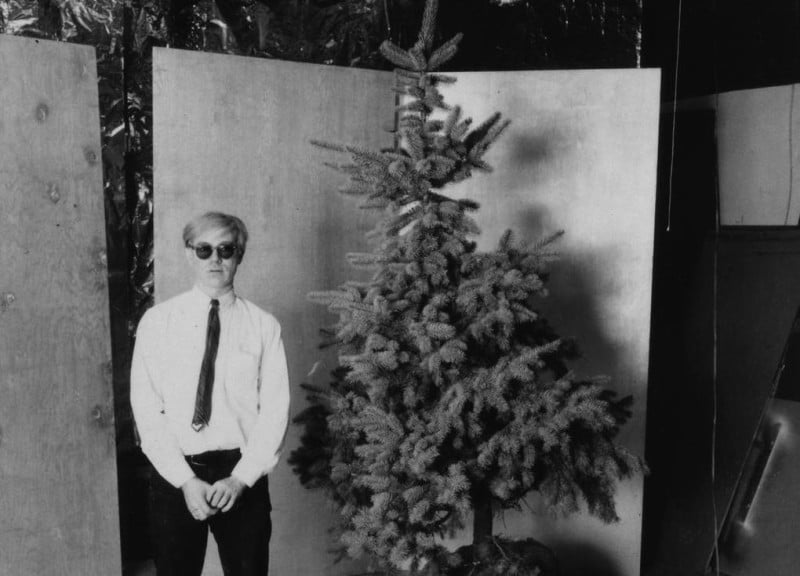
It’s been a long year. Rest your eyes on some pleasant holiday-themed paintings to celebrate getting through it.

Artnet News

It’s been a big year here at Artnet News. Over the last 12 months, we published thousands of stories, from profiles and podcasts to breaking news and reviews. But it’s the end of 2023 now and we’re tired. We just want to look at some nice art. With that in mind, here is a by-no-means-comprehensive smattering of Christmas-themed drawings and paintings to get you ready for the season. Happy holidays, readers.
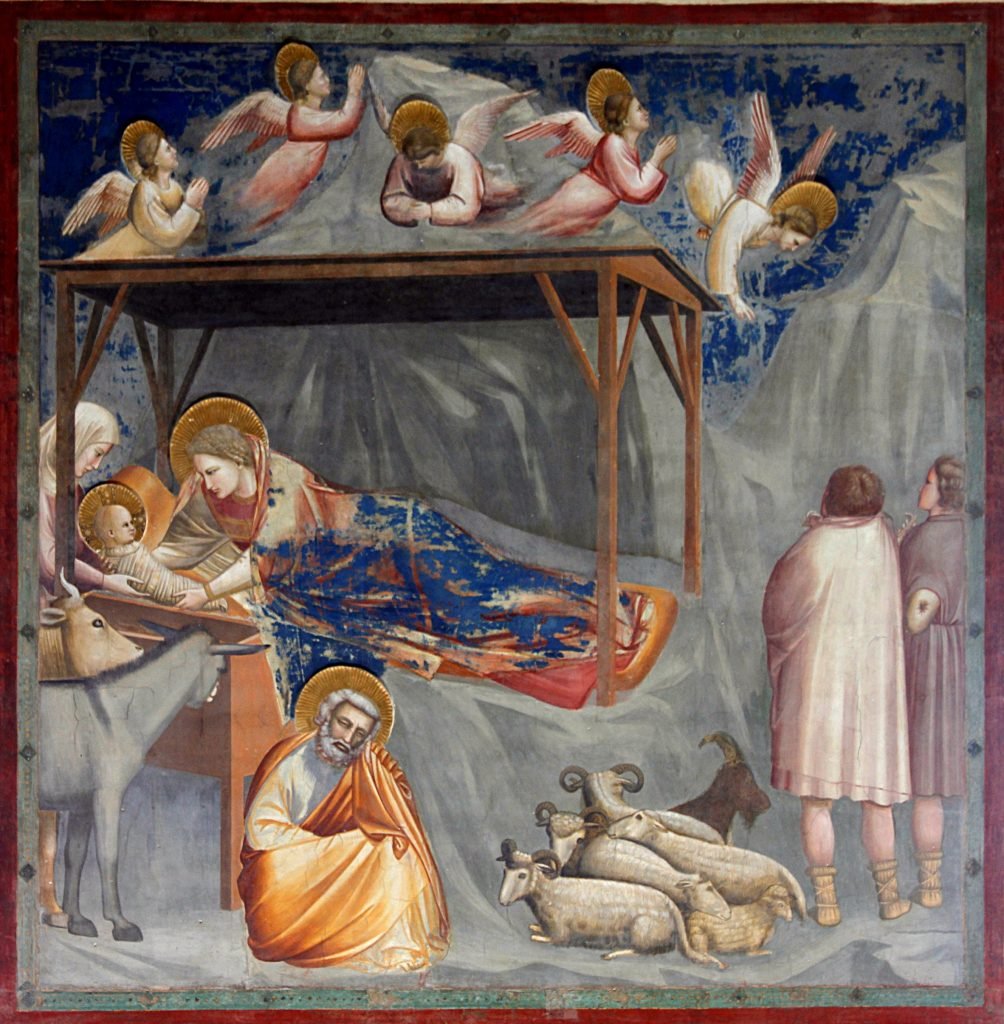
Giotto, Nativity (1303–05).
This early portrait of Jesus’s birth belongs to a suite of frescoes Giotto painted on commission for patron Enrico degli Scrovegni. With this and other masterpieces, Giotto helped usher in the Renaissance era.
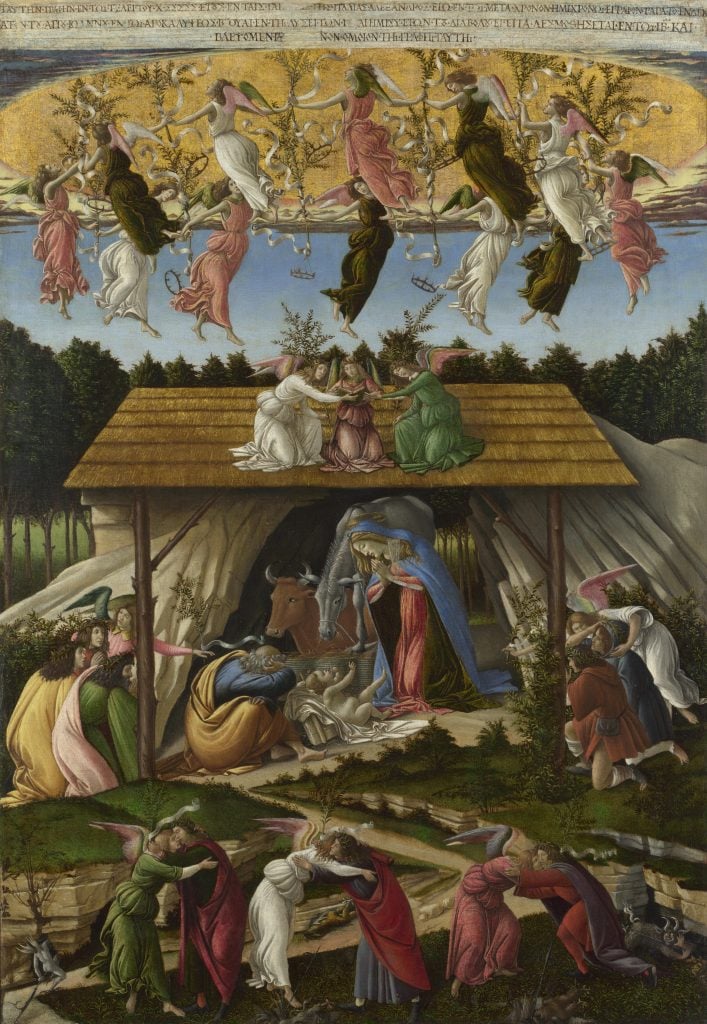
Sandro Botticelli, The Mystical Nativity (c. 1500–01)
Botticelli’s oil painting fuses medieval tropes—Jesus and Mary are shown larger than all other figures—with a Renaissance sensibility. The artwork lived in obscurity for centuries after the artist’s death until the late 18th century, when an English collector purchased it at auction for £80. It lives at the National Gallery in London today.
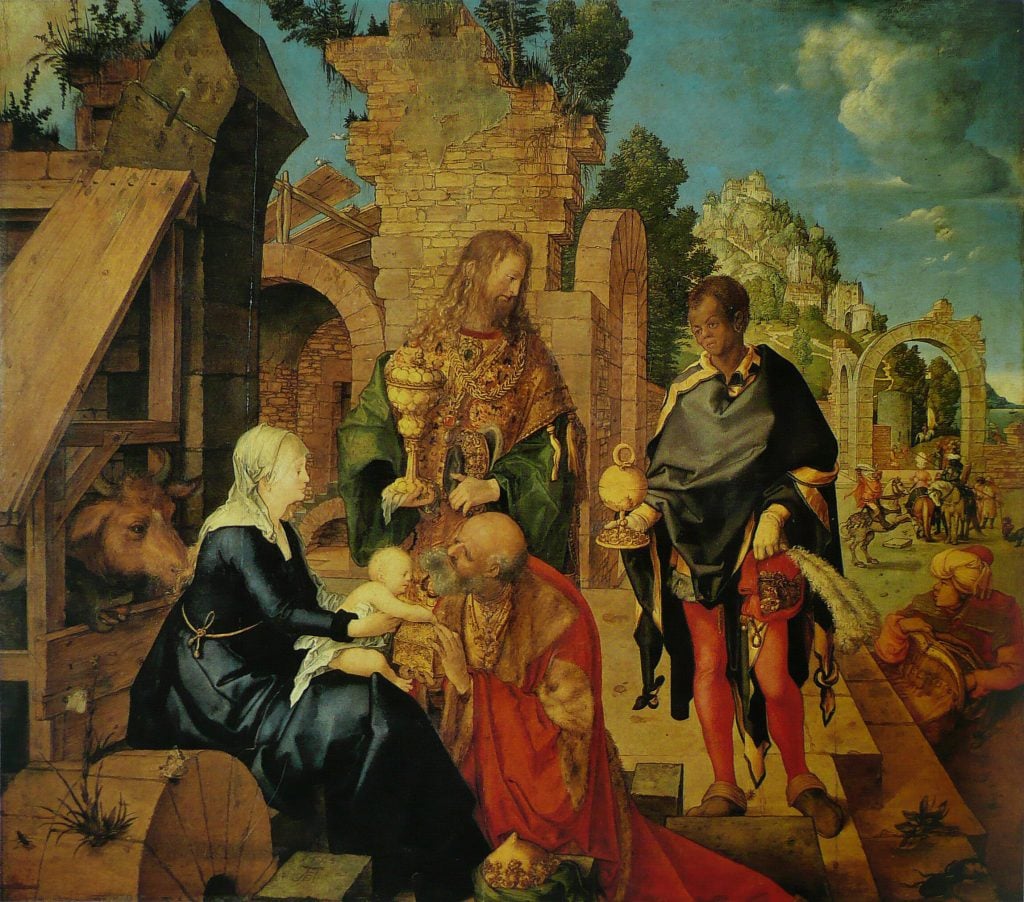
Albrecht Dürer, Adoration of the Magi (1504).
Dürer’s travels to Italy had a profound influence on his art, and this ultra-dimensional painting, with its rich details and colors, shows it. You can find it, newly-restored, at the Uffizi Gallery in Florence.
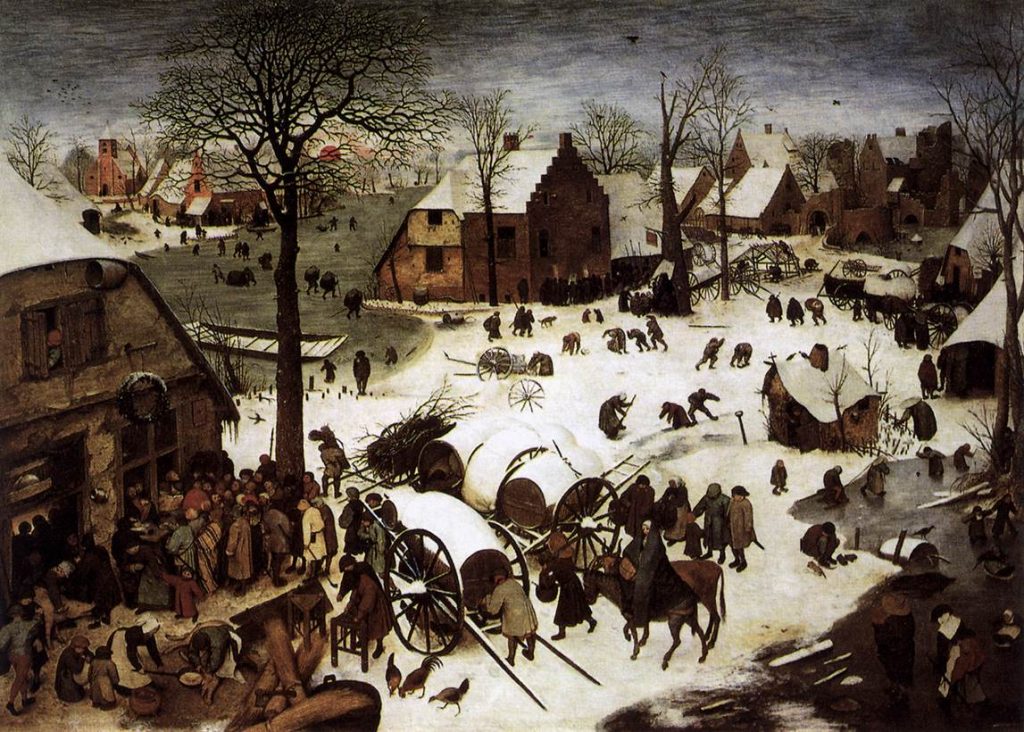
Peter Bruegel the Elder, The Census at Bethlehem (1566).
Bruegel’s painting, thought to be among the earliest depictions of snow in Western art, was created in the months following a famously harsh winter. It reimagines Bethlehem as a small Flemish village, busy with people.
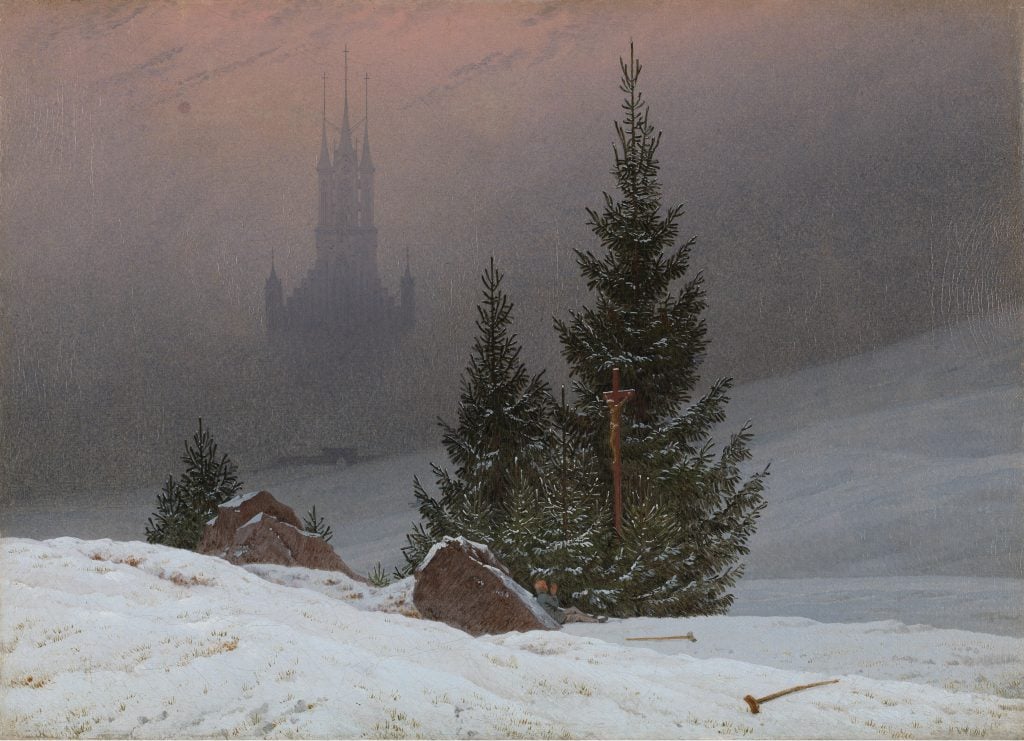
Caspar David Friedrich, Winter Landscape (1811).
With its efficient symbolism and suggestive scale, Winter Landscape features all the hallmark feats of technique that Friedrich was known for. It’s hard to believe that few knew it existed until 1982, when it was discovered in a private collection. Today, it lives in the holdings of London’s National Gallery.
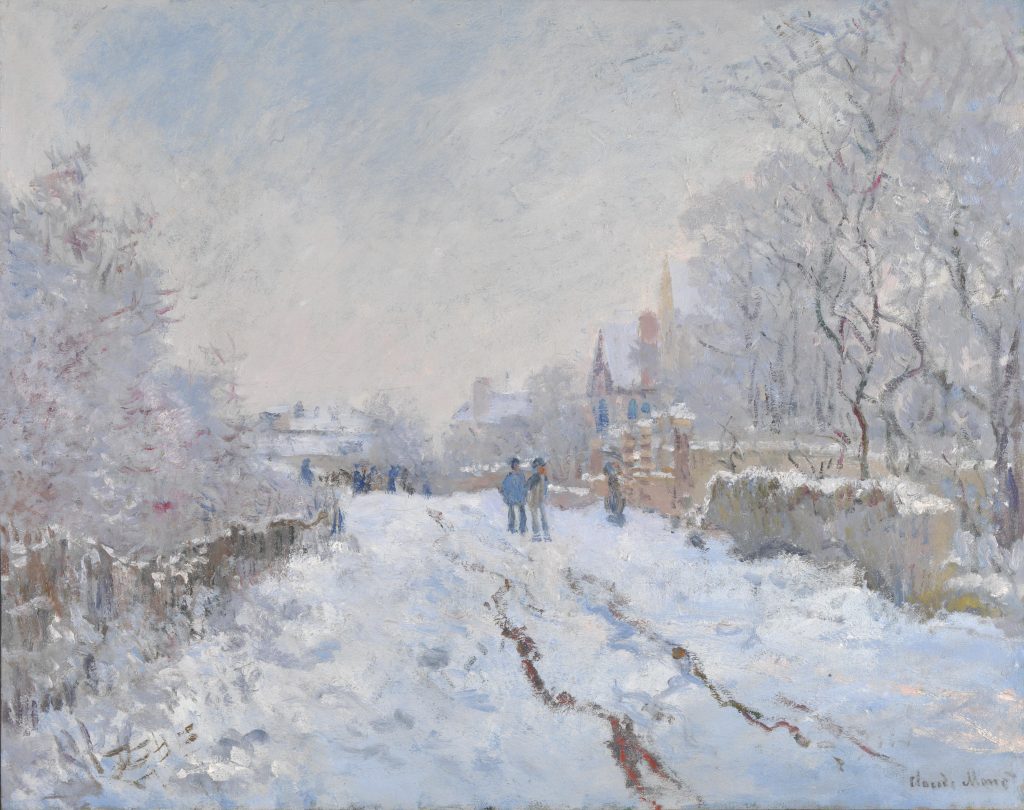
Claude Monet, Snow Scene at Argenteuil (1875).
More than any other painting on this list, Monet’s Snow Scene at Argenteuil just feels like winter. The artwork is one of some 200 the artist made during his six-year stint in the eponymous Paris suburb. It too belongs to the National Gallery in London.
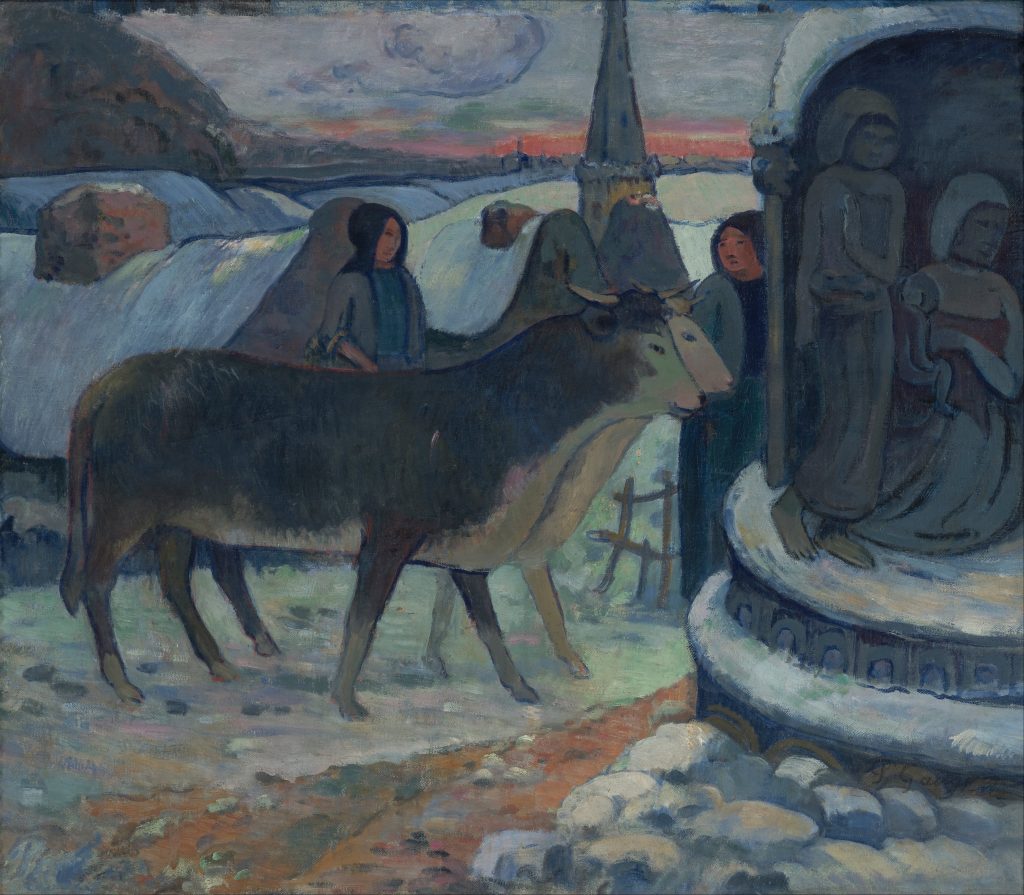
Paul Gauguin, Christmas Night (The Blessing of the Oxen) (1902–03).
Gauguin’s quiet Christmas scene is set in Brittany, but its inspirations came from all over. The cottages are based on sites in Pont-Aven, the oxen recall Egyptian symbols, and the figures in the nativity are believed to have been inspired by a Javanese frieze. The artist may have started the painting as early as 1894, but he didn’t finish it until 1902—one year before his death. It’s on view now at the Indianapolis Museum of Art at Newfields.
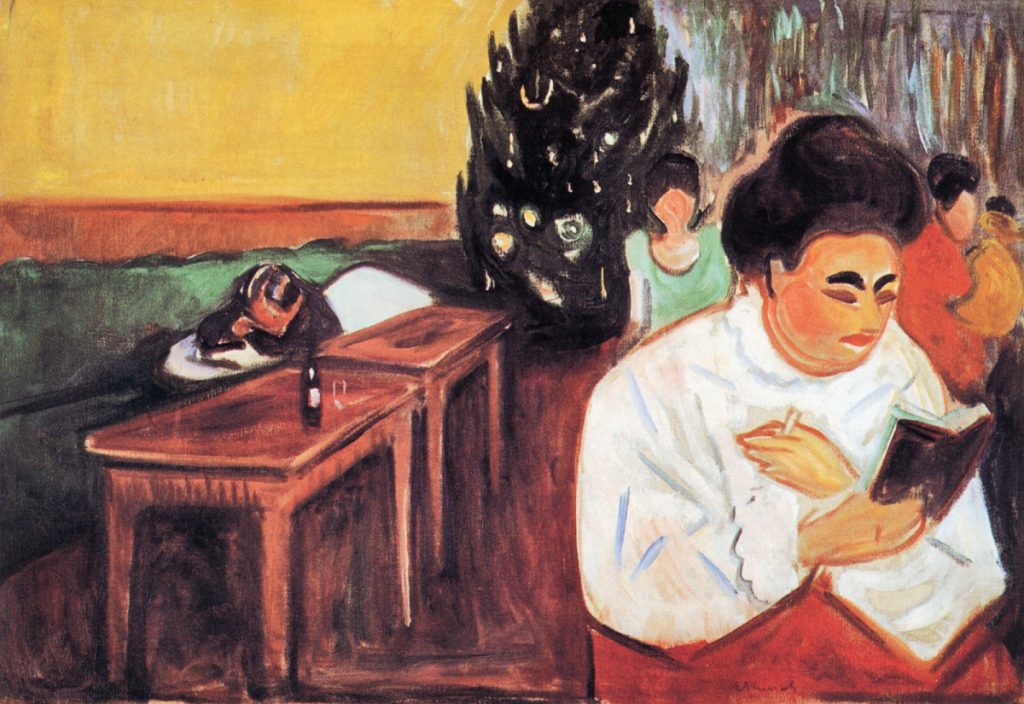
Edvard Munch, Christmas in the Brothel (1903–04).
A brothel isn’t the first place that comes to mind when one thinks of Christmas, but Munch finds hope in the setting, depicting its working girls in a moment of reverie after decorating their tree. The early 20th-century artwork, coded with class commentary, is housed at the Munch Museum in Oslo.
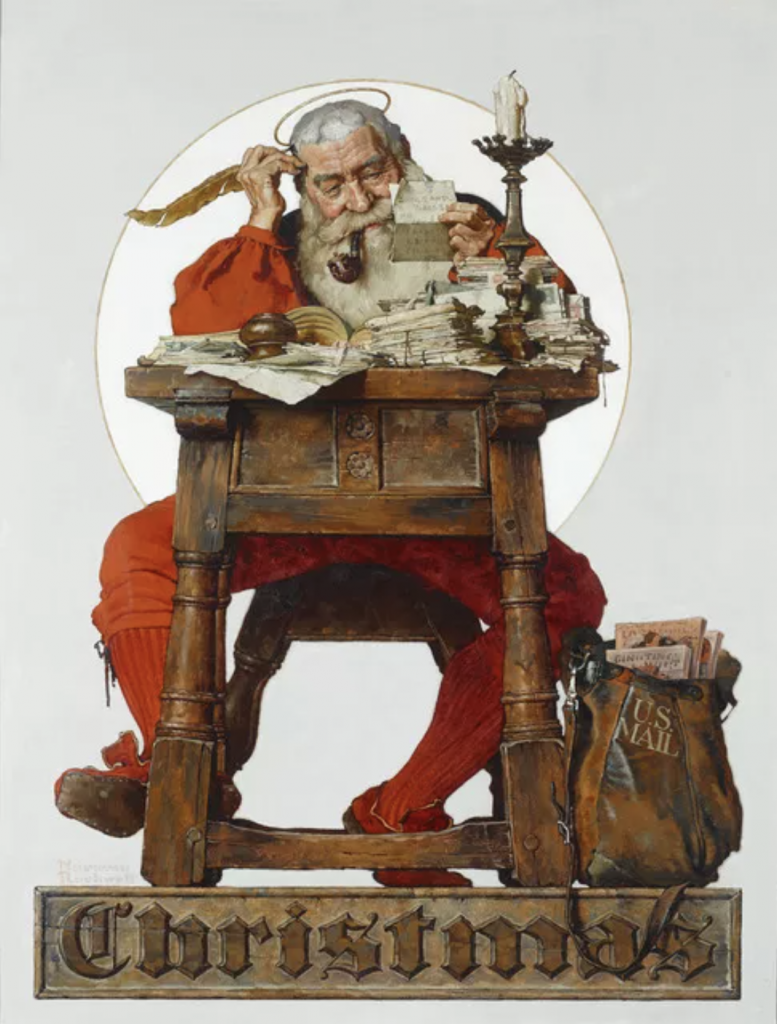
Norman Rockwell, Christmas: Santa Reading Mail (1935).
Many of Norman Rockwell’s mid-century Christmas visions still loom large in the cultural imagination today. This mild-mannered portrait of Santa, created for the cover of the Saturday Evening Post in late 1935, is one of them.
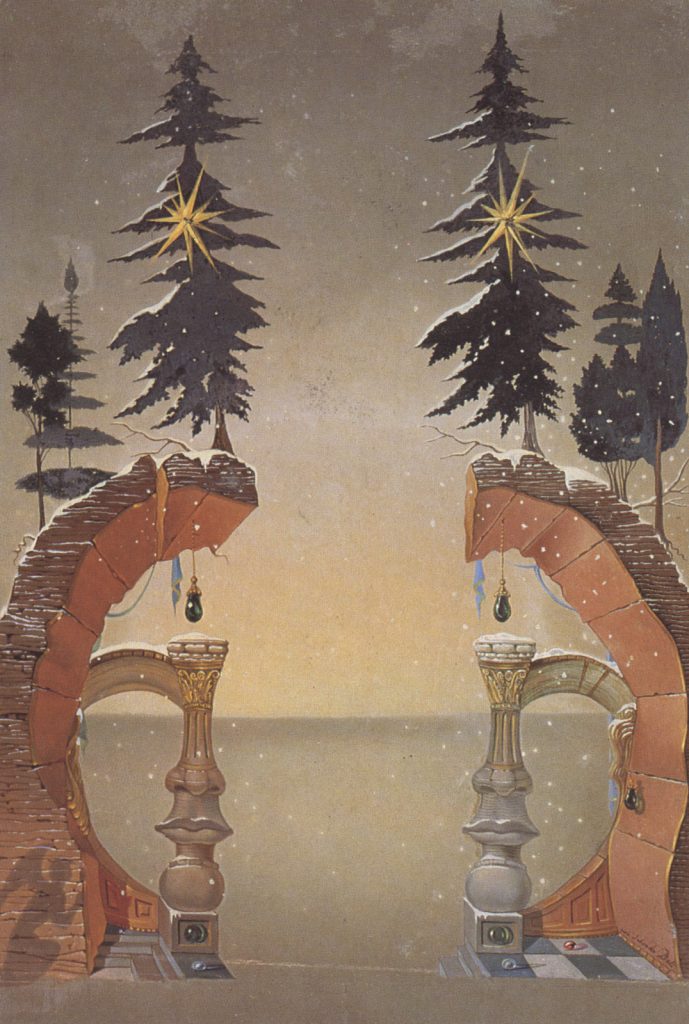
Salvador Dali, Christmas (Noel) (1946).
This painting was also created for a magazine cover, but there’s more to it than meets the eye. Dali’s scene, made for the December 1946 edition of Vogue, came with a set of instructions that, when followed, allowed readers to unlock a hidden-in-plain-site optical illusion.
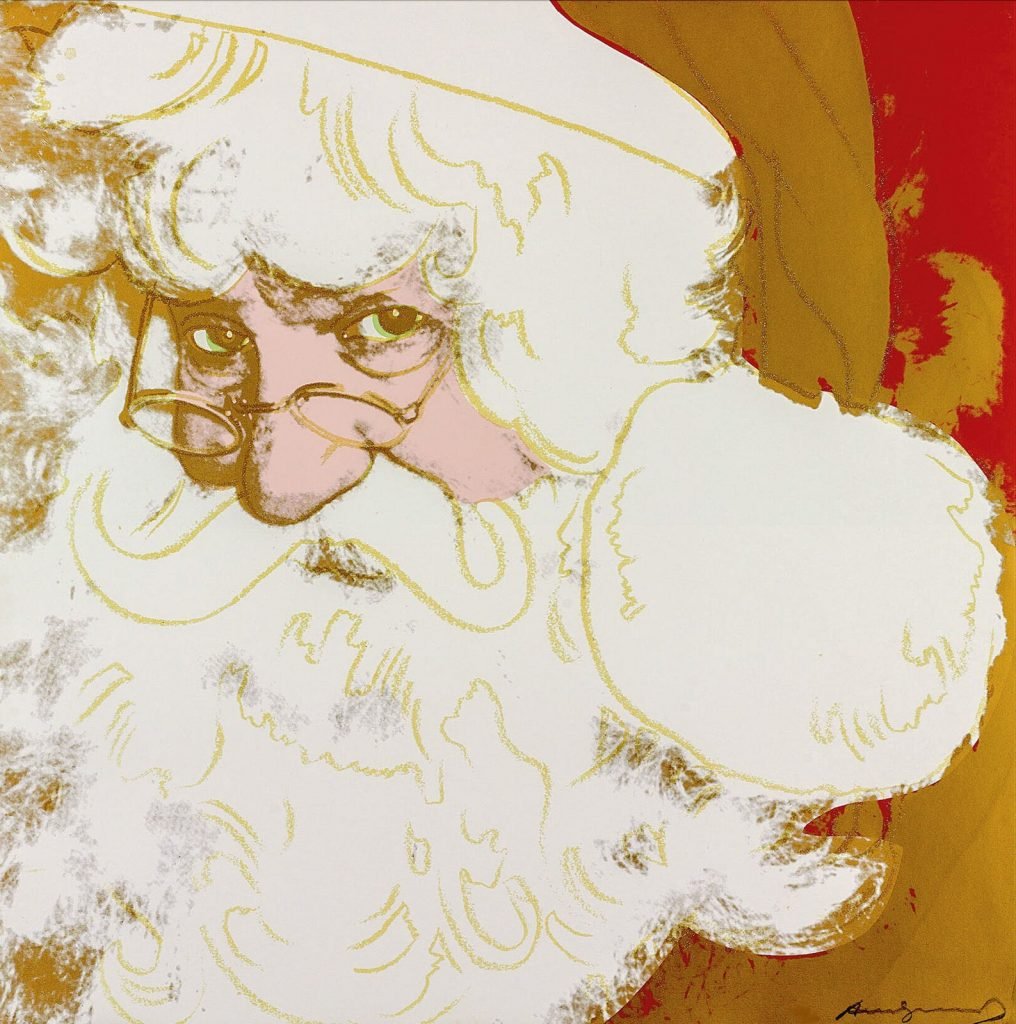
Andy Warhol, Santa Claus 266 (1981).
Christmas was a theme Andy Warhol revisited on numerous occasions throughout his career, and it makes sense why: encoded in the DNA of most Christmas images is an unholy mixture of religious and commercial iconographies. This particular print, created for the artist’s 1981 Myths portfolio, is coated in diamond dust.
More Trending Stories:
Art Dealers Christina and Emmanuel Di Donna on Their Special Holiday Rituals
Stefanie Heinze Paints Richly Ambiguous Worlds. Collectors Are Obsessed
Inspector Schachter Uncovers Allegations Regarding the Latest Art World Scandal—And It’s a Doozy
Archaeologists Call Foul on the Purported Discovery of a 27,000-Year-Old Pyramid
The Sprawling Legal Dispute Between Yves Bouvier and Dmitry Rybolovlev Is Finally Over